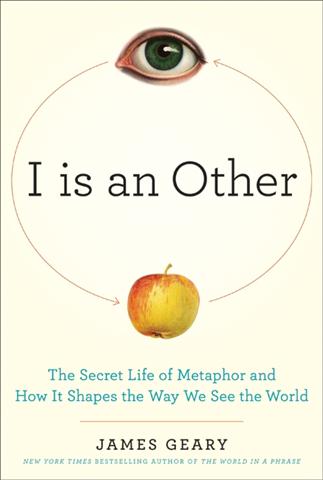
 As he demonstrated in his last book, The World in a Phrase, James Geary is a man intoxicated by words. Now he's turned his attention from aphorism to metaphor, arguing that it "shapes our view of the world, and is essential to how we communicate, learn, discover and invent."
As he demonstrated in his last book, The World in a Phrase, James Geary is a man intoxicated by words. Now he's turned his attention from aphorism to metaphor, arguing that it "shapes our view of the world, and is essential to how we communicate, learn, discover and invent."
Geary embarks from this thesis on a wide-ranging exploration of the subtle, often hidden, power of metaphor. Drawing extensively on behavioral studies of the sort popularized in works like Dan Ariely's Predictably Irrational, he is convinced we ignore that influence--from our pocketbooks to our politics--at our peril.
With the wounds of the 2008-2009 economic meltdown still fresh, Geary's assertion that the seductive financial metaphors ("the Dow fought its way upward" or "dropped off a cliff") we grasp to impose apparent order on the often chaotic financial markets create an "expectancy bias" that has little basis in reality should bring about rueful nods of agreement. Many of us like to believe we're inured to the power of metaphor in advertising, but from his discussion of the Zaltman Metaphor Elicitation Technique (ZMET), described metaphorically as "kind of like taking a Rorschach test administered by Carl Jung," designed to discover "deep metaphors" that influence consumer behavior, that confidence may not be well-founded.
There's no realm of modern life in which metaphor has come to predominate more than our politics (just ask Frank Luntz), and Geary devotes a chapter to some of the ways metaphor packaged as sound bites is mobilized to influence our electoral behavior. In one study, a firm that assists nonprofits' communications discovered that use of the term "public structures" to describe such functions as highways, health and safety agencies and educational institutions noticeably diminished participants' hostility to the activity of "government." Geary also spotlights the proclivity of politicians and media to lean on sports metaphors (there are some 1,700 in common use), citing 59 football metaphors alone that were invoked during the first Gulf War.
Discoursing with considerable assurance about a host of other disciplines, Geary reveals how metaphorical thinking pervades our lives. Our brains are primed to think metaphorically, and the absence of that ability, displayed in the behavior of people suffering from Asperger's syndrome, is a significant impediment to normal social interaction. Whether it's the analogical reasoning of scientific giants like Einstein or Stephen Hawking or the use of metaphor to transform imagination into the reality of inventions, we rely on it at a level almost below conscious thought.
For James Geary, metaphor is "not merely a matter of language alone but of thought itself." He's made an impressive case for that proposition, prompting us to reflect on its importance in our own lives and in the world around us.--Harvey Freedenberg
Shelf Talker: James Geary's energetic study of the power of metaphor draws on the latest research to demonstrate its critical role in our lives.

